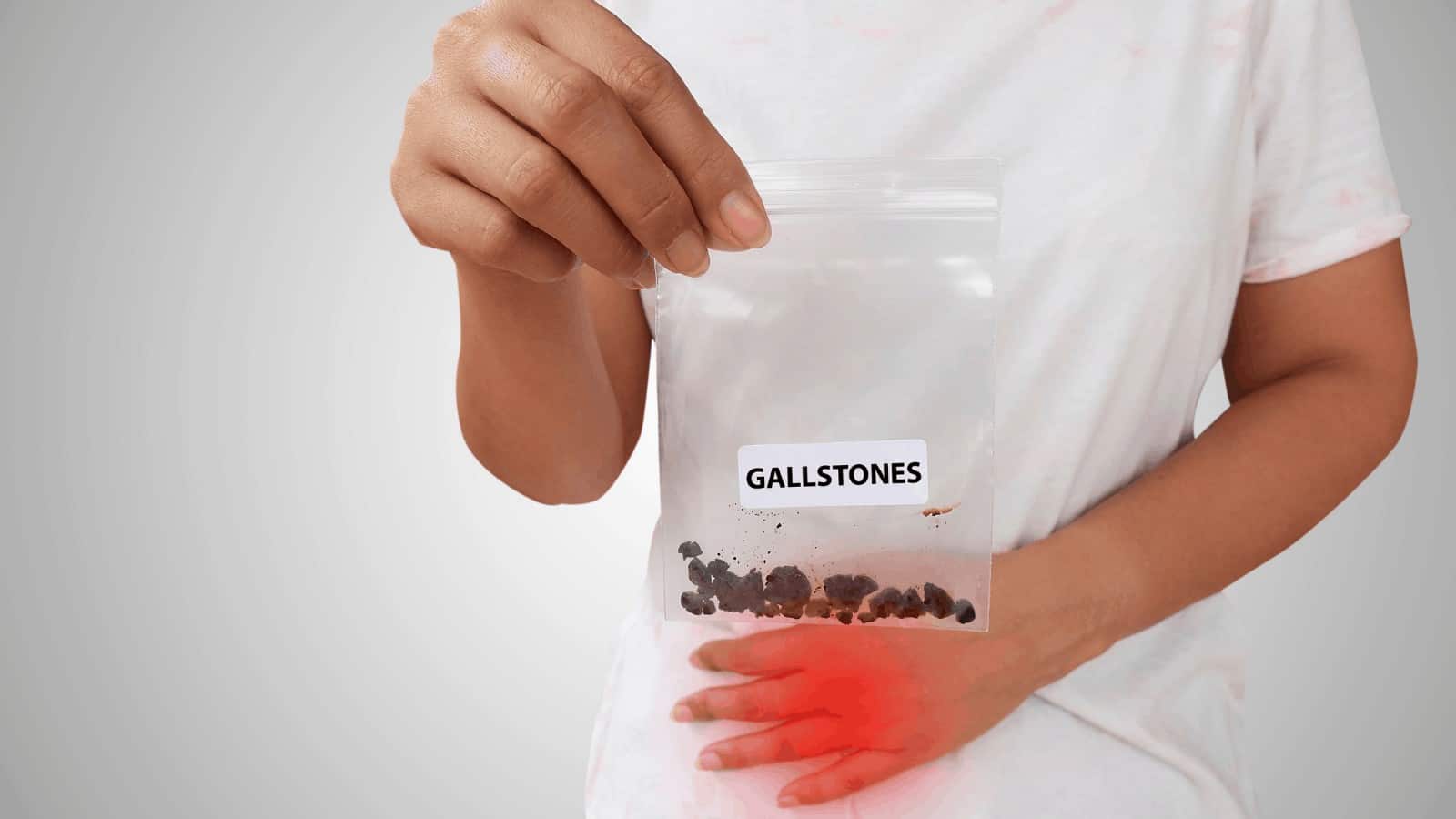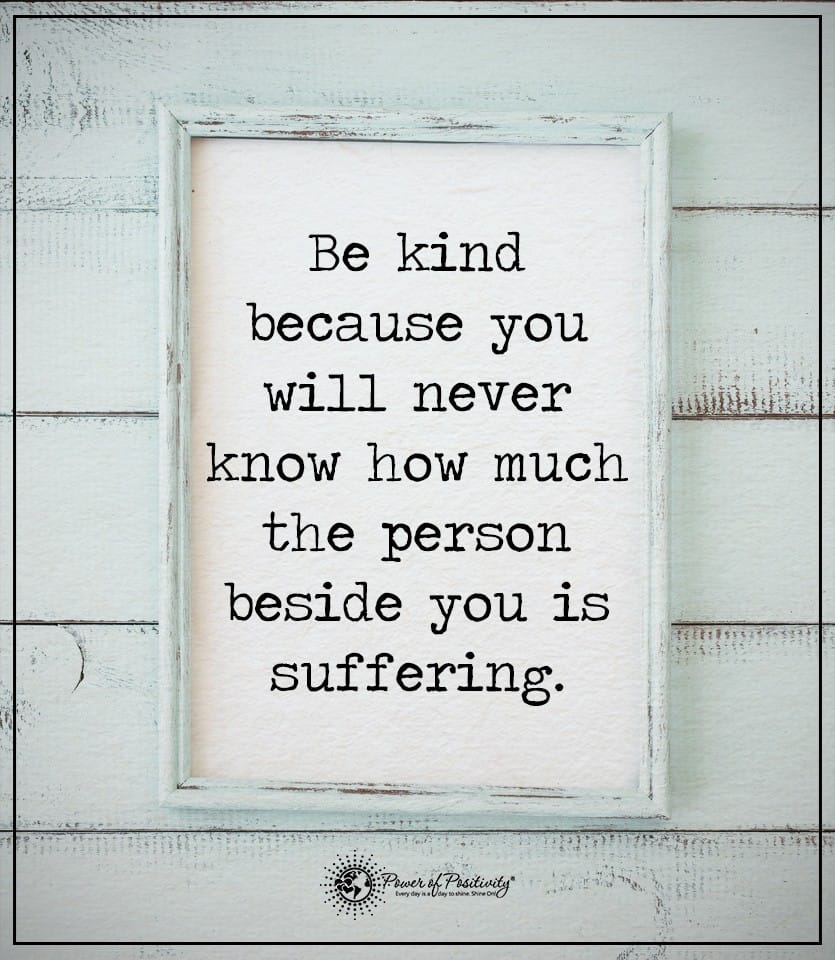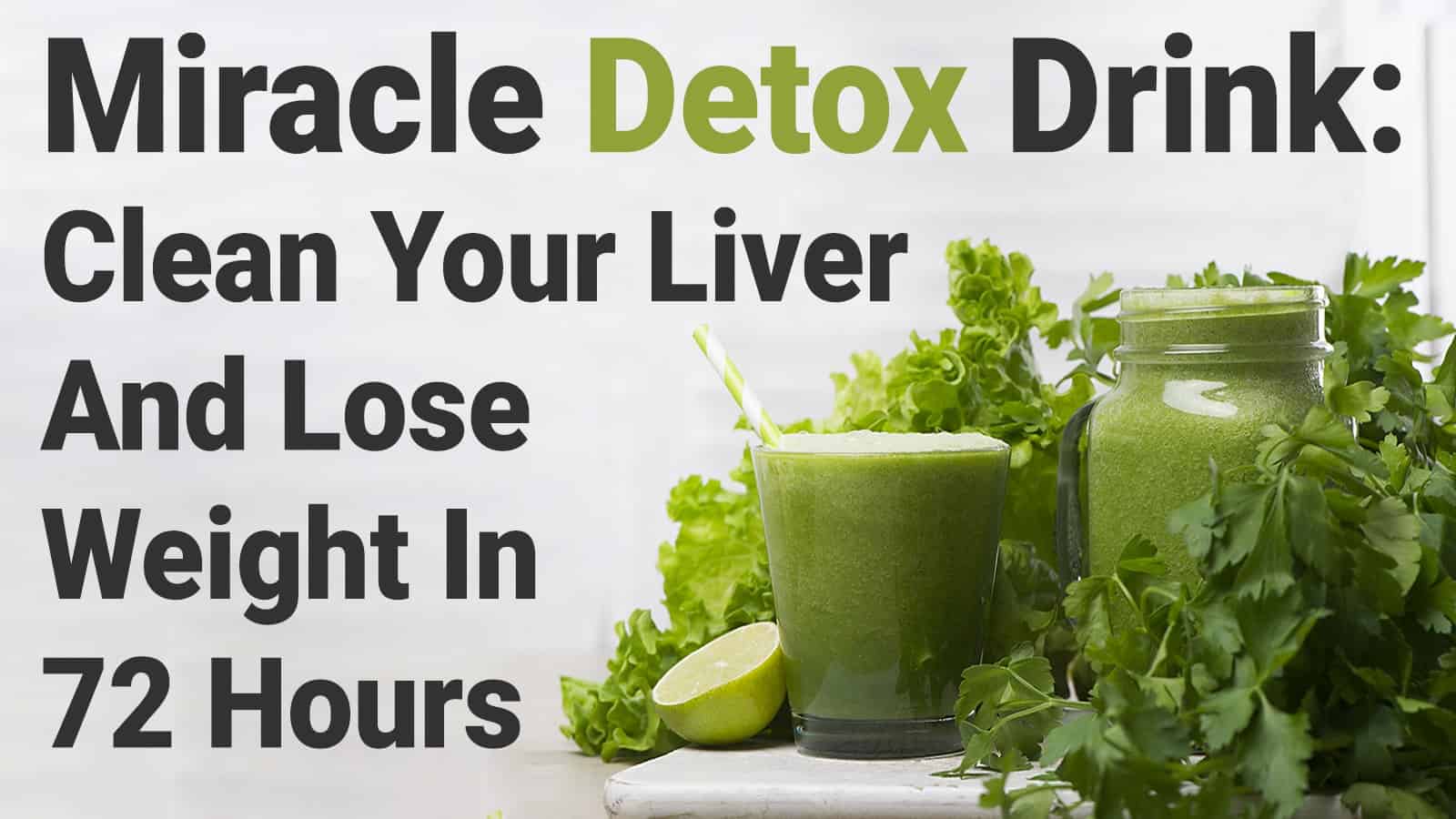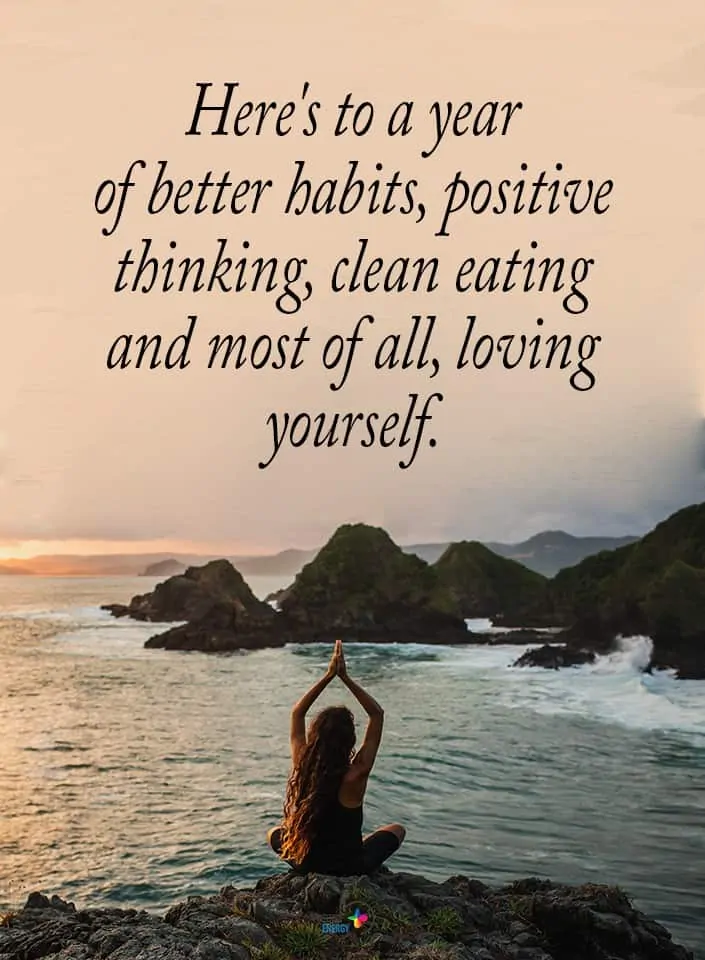Gallstones are hard deposits of bile that sometimes form in your gallbladder. Usually, you don’t even know you have them. But if these stones block the flow of the bile, it can be harrowing. Gallstones affect over 30,000 Americans every year. You may wonder if you have gallstones. Here is what doctors say: the causes and symptoms of gallstones and how you can get rid of them.
What does your gallbladder do?
Your gallbladder is a small organ in the upper right side of your stomach. It stores the fluid produced by your liver called bile. Bile helps break down fatty foods. As you eat, your gallbladder contracts causing the bile to empty from your gallbladder into your small intestine. When the chemicals that produce bile get off balance, gallstones form. The two types of gallstones are cholesterol or pigment gallstones.
Cholesterol gallstones form if there is too much cholesterol in the bile inside your gallbladder. These account for 80% of gallstones and are often the culprits of obstructions or inflammation in your gallbladder.
Pigment stones are made of calcium and assorted other minerals. These stones don’t normally cause problems in your gallbladder. But brown pigment stones, which are made up of calcium, protein, and cholesterol, can cause obstructions and pain.
What is a gallbladder attack?
You often have no symptoms from your gallstones, but if a stone blocks the bile flow, it can cause irritation and pain. Gallbladder attacks cause pain in the upper right side of your stomach. They often happen late at night after eating a large, heavy meal. If you’ve had one attack, you’re probably going to have more. Once the gallstones move away from the bile ducts, the pain may subside.
If the gallstones continue to block the bile ducts, it can cause complications, including
- Damage to your gallbladder, liver, or bile ducts
- Infection in your gallbladder or liver
- Inflammation in your gallbladder
- Pancreatitis, or inflammation of your pancreas
If you think you have a gallstone attack, seek medical help right away. Gallstones can cause death if they are left untreated.
Who’s at risk for gallstones?
You may be prone to this problem due to specific risk factors.
Age factor:
Women between the ages of 20 to 60 are at a high risk of getting gallstones. Pregnant women are more likely to have symptoms—as well as men who are over 60 years of age.
Genetic factor:
Your genes can play a role in the presence of this condition. If you have a close relative such as a parent or sibling with gallstones, you have an increased risk of getting them.
Medical conditions factor:
Certain medical conditions or lifestyles cause you to be at risk for gallstones, including the following:
- Overweight
- Diabetic
- IV feeding
- Sickle cell anemia
- Cirrhosis of the liver
- Crohn’s disease
- Hyperthyroidism
- Rapid weight loss
- Spinal cord injury
- Gastric bypass
- Sedentary lifestyle
Ethnic factors:
Certain ethnic backgrounds are more prone to gallstones.
- Native Americans (the Pima people have the highest gallstone rate in the United States)
- Northern European
- Mexican-descent Americans
Taking certain drugs:
If you take certain drugs, you are more susceptible to gallstones. These pharmaceuticals include the following:
- Oral contraceptives
- Cholesterol-lowering drugs
- Hormone replacement drugs
- Ceftriaxone
- Octreotide
- Somatostatin
- Thiazide diuretics
Diet factors:
Certain dietary changes put you at such as:
- Losing weight too fast
- Fasting
- Eating too many trans fats.
- Eating high glycemic index foods.
Symptoms of gallstones
Oftentimes, gallstones cause no problem, and they’re only found if you have a CT scan for something else. But if you have gallstones that block a bile duct, there will be noticeable symptoms, including:
- Pain in your upper right side of your abdomen, below your rib cage
- The pain gets worse within an hour.
- Sharp, knife-like pain that radiates to your back or right shoulder
- Nausea
- Vomiting
- The pain may subside for a while, then return later.
If a gallstone gets stuck in the bile duct, it can cause serious problems. Your doctor may prescribe antibiotics or surgery depending upon the severity of the gallstone attack.
Why do women have a greater risk of gallstones?
Gallstones affect women more than men. This is due to an estrogen hormone that increases the cholesterol in the bile and progesterone hormones, which slows down your gallbladder’s ability to empty properly. Before the age of 40 years of age, women are diagnosed three times more often than men. Estrogen therapy also increases your risk of gallstones.
How can someone prevent gallstones?
There are some simple things you can do to reduce your chances of getting gallstones.
Eat a healthy Mediterranean diet.
Eating a Mediterranean diet reduces your chances of getting gallstones. Researchers say that parts of the world where people have a high consumption of olive oil are less likely to have gallstones. A Meditteranean diet includes eating:
- Lots of vegetables and fruits
- Nuts and seeds
- Beans
- Healthy grains
- Olive oil
- Fish
- Small amounts of dairy and meat
- Red wine
Exercise
Exercise is another key component to avoid gallstones. A sedentary lifestyle puts you at higher risk.
Avoid crash dieting
Crash diets where you reduce your calorie intake too much or skip meals can hurt your heart and gallbladder. When you lose a lot of weight quickly, it makes your gallbladder empty slowly. This allows a build-up of bile and cholesterol. Instead, choose to lose weight at a slower pace, usually 1or 2 pounds a week, by eating a healthy diet and increasing your exercise.
Eat a high-fiber diet.
Eating high fiber is essential to reduce your bad cholesterol. Not only does this protect your heart, but it also protects you against gallstones. Eating high fiber and low fat keeps the bile cholesterol in your gallbladder a liquid instead of turning into hard stones. Fiber flushes bile out of your gallbladder and gets your digestive system going. Choose high-fiber foods to eat, such as
- Whole grain pasta
- Whole-grain bread
- Brown rice
- Wild rice
- Oatmeal
- Popcorn
- Barley
- Bulghur
Maintain a healthy weight
If you’re overweight or obese, you’re at risk of getting gallstones. Extra pounds make your gallbladder bigger, so it doesn’t work as well. This raises your cholesterol levels. This is especially true if you carry your weight around your waist rather than your hips or things.
Lecithin
Another natural compound that can help keep cholesterol from getting hardened and forming gallstones. Lecithin is naturally found in certain foods, including:
- Soybeans
- Oatmeal
- Eggs
- Milk
- Peanuts
- Cabbage
- Chocolate
You can take lecithin supplements, but be careful. Taking too much lecithin can lead to liver problems. So check with your nutritionist before taking it.
Do gallbladder cleanses work?
Gallbladder cleanses a popular remedy for getting rid of gallstones. There’s no evidence that a gallbladder cleanse can get rid of gallstones. These cleanses often involve a drink that’s a combination of olive oil, herbs, and fruit juice. Supposedly the cleanses break up the gallstones and help your gallbladder release them. Olive oil is a laxative, but doctors haven’t seen that cleanses dissolve gallstones. People claim to see big gallstones in their stools, but it’s actually globs of the oil and juice that combine and are removed in bowel movements.
Cleansing routines can be dangerous. You may experience vomiting, nausea, diarrhea, or abdominal pain while cleansing. If you think you have this condition, it’s best to talk with your doctor to decide your next step. If you have a gallbladder infection due to the stones, you need the care of a doctor, which may be followed by surgery. Surgery is usually a laparoscopic outpatient procedure. They also use sound waves to break up gallstones.
For further guidance, consult with your doctor before you proceed with this option.
You can live without a gallbladder.
If you need to get your gallbladder removed due to frequent gallbladder attacks, a gallbladder infection, or the risk of damaging your liver, don’t worry. You can live a healthy life without a gallbladder. You don’t need your gallbladder for digestion. Without a gallbladder, your liver will make enough bile to digest your food, and instead of storing the bile in your gallbladder, it drips into your small intestines. You won’t need to eat a special diet after surgical removal. But of course, you should continue to eat a healthy diet and get exercise for overall good health. Some people say they experience bloating and diarrhea after surgery. But this usually improves over time.
The most gallstones
If you’re the competitive type, you may be interested to know that an Indian doctor removed what experts believe to be the most gallstones ever to be removed from one person. Dr. Makhan Saha removed a whopping 11,950 gallstones from a 51 women patient in 2015.
The largest gallstone in the world
The largest gallstone in the world was removed from a 72-year-old woman in Trinidad and Tobago, a small twin-island area off the coast of Venezuela. The gallstone measured 5 inches by 2.7 inches and was removed laparoscopically in 2020.
Final thoughts on recognizing the presence of gallstones and knowing how to prevent them
The best way to avoid gallstones is prevention. Eating a healthy Meditteranean diet, exercise, and maintain a healthy weight reduces your chances of getting them.
















 Community
Community

